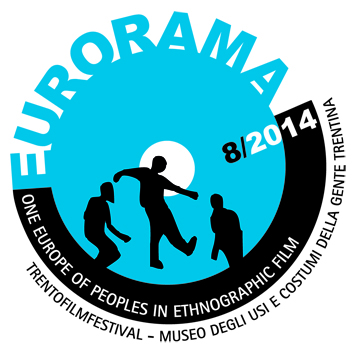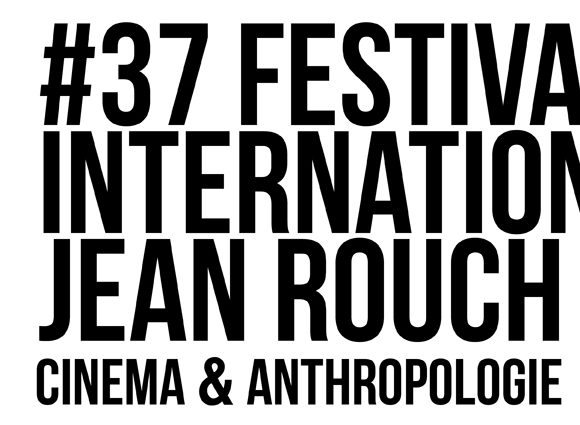EURORAMA 8, 2014
One Europe of peoples in ethnographic film festivals
Trento 27th – 28th April 2014
Filming the other, filming the intangibile
To the far east of Europe: Russians and Romanians horizons
Eurorama8 presents 11 award winning films which in 2012-2013 took part to some of the most important European festivals of ethnographic film: Sibiu (Romania), Ljubjana (Slovenia), Yekaterinburg (Russia), Belgrade (Serbia), Boltaña (Spain), Vienna (Austria), Tartu (Estonia), Edinburgh (Scotland), Bilbao (Portugal), Kratovo (Macedonia), Dakovo (Croatia). The first section, under the caption “Filming the other, filming the intangible”, recounts of some elusive aspects of our society, such as psychological distress, religious feelings, the time of feasting and everyday life, the joy of creativity, the harmony of gestures and the making of improvised poetry. The second section “In the far east of Europe: Russians and Romanians horizons has two films set in Romania, a country still struggling with the painful changes of the post-socialist era. The other films are set on the far edges of the Russian continent, from neighbouring Azerbaijan, through to the suburbs of Moscow and the remote villages of Siberia.
PROGRAM:
Sunday 27th April 2014
Cinema Multisala Modena (viale S. Francesco d’Assisi, 6 – Trento)
EURORAMA 8.1
Filming the other, filming the intangibile
15.15 Astra Film Festival 2013 (Sibiu, Romania)
(Student Award)
Matthew’s Laws, by Marc Schmidt, Basaltfilm, Netherlands, 2011, 72 min.
The Director films his childhood buddy, Matthew, who suffers from autism and desperately tries to create order in the chaos around him. Followed closely in his privacy, Matthew’s explosive confrontations with the outside world are alternated with observations and personal confessions. Little by little, the film unravels the complex way of Matthew’s thinking and shows the catastrophic consequences his disorder may eventually have for him.
17.15 NAFA Nordic Anthropological Film Association Festival 2013 (Bilbao, Spain)
Alto do Minho, by Miguel Filgueiras, Museu do Traje de Viana do Castelo, Portugal, 2012, 49 min.
The film shows us scenes of Northern Portugal in rhythmic succession. It shows the many facets of the life in the lowlands and the gentle highlands at the Minho, which is shaped by the rhythm of the Atlantic Ocean, and religious faith, by its past and its present . It is an impressionistic portrait of daily life and festivities in the mountains.
RAI International Festival of Ethnographic Film 2013
(Edinburgh, Scotland)
(Material Culture and Archeology Film Prize)
Rockerill: Rekindling the Fire, by Yves Mora, Belgium, 2011, 53 min.
Five years ago, one of the oldest industrial buildings of Charleroi – ‘les Forges de la Providence’ – was saved from demolition being bought by two citizens: Thierry Camuy and Mika Hell. Together with some close friends and artists, they turned it into a place of alternative creation which became a symbol of renaissance and image rehabilitation for the whole region.
19.15 Days of Ethnographic Film 2013
(Ljubjana, Slovenia)
La Carrera, di Assunta Nugnes e Francesco Costabile, Multidea s.r.l., Istituto Superiore Regionale Etnografico della Sardegna, Italia, 2013, 78 min.
The Northern Coastline of Sardinia. Castelsardo. During the Holy Week it becomes the stage of a complex and fascinating ritual. The undisputed stars are the singers of the Santa Croce Congregation. A brotherhood. A group of singers. A group of men. They stop time with an unique aim: to go out on the streets and sing about the Passion of Christ. Their voices echo through the dark alleys while they try to surpass the boundaries of everyday life and their own humanity in order to be redeemed through their voices. It is a world of men, but above the men’s voices there is one more voice, the ethereal, the virtual, the voice of Our Lady.
21.15 Espiello International Festival of Ethnographic Documentary 2013 (Boltaña, Spain)
(Special Mention of the Jury)
Bertsolari, by Asier Altuna, Txintxua Films SL, Spain 2011, 85 min.
The bertsolari is the improviser of verse sung in the Basque language, l’euskara. This oral tradition has managed to evolve and adapt to the times, connecting with the younger generation and bringing together ten thousand people at the final of the last championship. An austerely aesthetic art that surprises in this era of spectacle and special effects.
Monday 28th April 2014
Sala Fondazione Cassa di Risparmio di Trento e Rovereto (via Garibaldi, 33 – Trento)
Ore 10.00 “Carnival King of Europe” in France: film by Museo degli Usi e Costumi della Gente Trentina realized for the exhibition “Le monde à l’envers”, Marseille, Musée des Civilisations d’Europe et Méditerranée, 2014.




